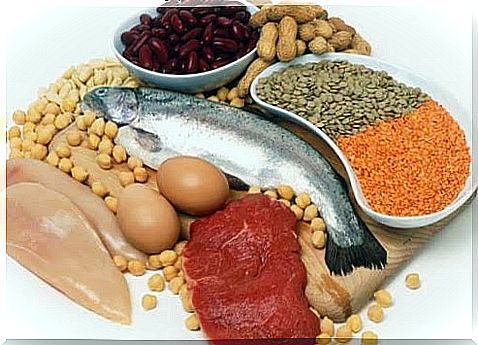Learn All About Maternal Phenylketonuria

There are diseases and conditions that, however strange and unlikely they may seem, can affect you or your baby. One of those is precisely maternal phenylketonuria.
Phenylalanine is an amino acid and as such has the function of assisting in the process of protein formation in the body . When it cannot be processed it accumulates in the blood and causes health problems.
If maternal phenylketonuria, also called PKU, is controlled with treatment and a strict diet, there will be no problems. However, if there is no control, it can affect the development of the fetus .
Origin of maternal phenylketonuria

Phenylketonuria is an inherited condition. It is only transmitted from parents to children, through genes. Being transmitted in this way there is a high probability of health problems for the baby. However, for a child to have PKU, both parents must suffer from this unusual condition or be carriers.
In the event that only one of the parents of the new baby has PKU, the future child will be a carrier, but will not suffer from the disease. Even if both parents have the disease, the baby You will have a 25% chance of directly suffering the attacks of it. In the worst case, PKU syndrome can complicate pregnancy, and there may be a risk of miscarriage.
Problems in pregnancy
If the expectant mother has good control, this condition should not affect the development of her unborn baby. The real complication is that many times the mother or father is unaware that they have this condition.
Some people with this disease were born at a time when there was no PKU Early Detection Plan.
Individuals who have the diagnosis are required to follow a diet strictly so as not to affect their child. In the worst case, PKU syndrome can complicate pregnancy, and there may be a risk of miscarriage.
For their part, children may suffer from microcephaly, small degrees of mental retardation, facial changes and low birth weight.
How can we prevent embryo-fetopathy transmitted to the child by a PKU mother?

If you suffer from this disease or are a carrier, more than worrying, it is essential to take care of yourself. The transmitted effects may be minimal or null if adequate levels of phenylalanine are achieved. in blood, during the 3 months prior to conception.
These must also be maintained throughout the pregnancy process. The important thing is to follow the controls and diets that your doctor will prescribe to the letter. Suitable phenylalanine levels are between 120 and 360 µmol / L (2-6 mg / dl).
Therefore, an important part of your medical care should be directed to knowing the state of your body and the possible genetic conditions of which you may be a carrier . Reviewing this type of medical data on the father would also be wise.
How is the diet to control maternal phenylketonuria?
The important thing is to start a diet that reinforces the amount of proteins, minerals and vitamins in the body of the future mother. Additional food products or medications will depend on the diagnosis made by the doctor and the condition of the patient.
Most likely, mothers diagnosed with this condition will be prescribed a special phenylalanine-free formula, which will allow your little one to acquire all the necessary ingredients for their growth inside the tummy.
It is essential to gain adequate weight during pregnancy and your goal will be to try to retain protein. Protein intake will increase notably and you may have to take a supplement in case of missing a mineral in your body .
Control and medical review
The rest will be subject to rigorous controls . For women who are going to have children for the first time, it is best to have tests that tell us if we have this genetic condition .
A phenylalanine check and a specialized dietary survey will be vital. You must maintain strict control during pregnancy. Go to your monthly check-ups, the doctor will be in charge of controlling your weight, protein intake and the corresponding fetal ultrasounds. Don’t be scared, just be disciplined .









